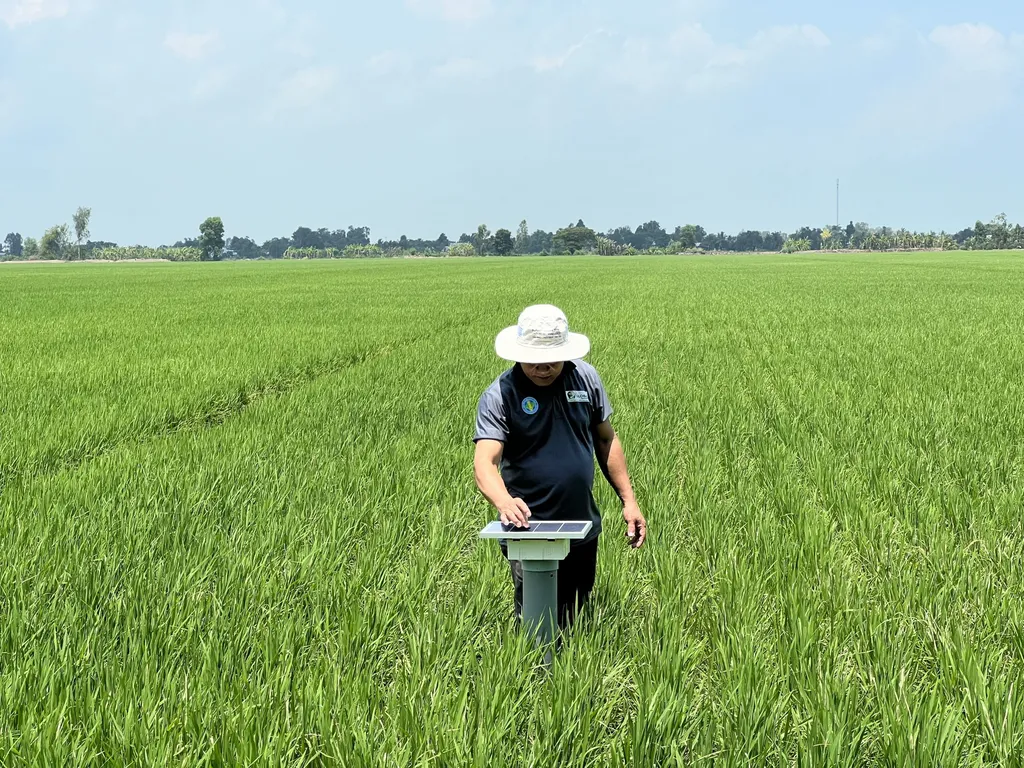In the heart of Vietnam’s Mekong Delta, a transformation is underway that could reshape the future of rice farming and contribute to global efforts to reduce greenhouse gas emissions. A recent study led by Thai Phuong Vu from the Faculty of Environment at Hochiminh City University of Natural Resources and Environment has shed light on the potential of large-scale, mechanized rice farming to significantly cut CO₂ emissions while boosting economic returns.
The research, published in *Frontiers in Sustainable Food Systems* (translated as *Tiền Phòng Hệ Thống Thực Phẩm Bền Vững*), focuses on the OM4040 rice variety and its cultivation in the Mekong Delta. By transitioning from traditional smallholder farming to large-scale, mechanized operations, the study found a remarkable 15.5% reduction in CO₂-equivalent (CO₂e) emissions per ton of rice produced. This reduction is largely attributed to improved water management practices, such as alternate wetting and drying, laser-assisted land leveling, and optimized fertilizer use.
“Improved water management is a game-changer,” says Vu. “It not only reduces emissions but also enhances water use efficiency, which is crucial for sustainable agriculture in the face of climate change.”
The study also highlighted the importance of mechanized operations, which, despite increasing fuel-based emissions, were offset by higher yields. Postharvest straw reuse further contributed to emission reductions, avoiding 2.4–3.0 tons of CO₂e per 10 hectares per season. This practice reinforces circular economy principles, where waste is minimized, and resources are used more efficiently.
Economically, large-scale systems were found to be more profitable when land rental costs were excluded. This finding underscores the need for enabling infrastructure and land policy reforms to enhance scalability and sustainability. The integration of carbon efficiency and sustainability indices provided a comprehensive evaluation of emission trade-offs, offering a holistic view of the environmental and economic benefits.
The implications of this research are far-reaching. For the energy sector, the adoption of climate-smart rice production systems could open new avenues for collaboration and innovation. As the world seeks to reduce its carbon footprint, the lessons learned from the Mekong Delta could be applied to other regions, fostering a more sustainable and resilient global food system.
“Our findings support the adoption of climate-smart rice production systems,” Vu emphasizes. “This is not just about reducing emissions; it’s about building a more sustainable and resilient future for agriculture.”
As the world grapples with the challenges of climate change and food security, the insights from this study offer a beacon of hope. By embracing large-scale, mechanized rice farming, we can reduce emissions, boost economic returns, and pave the way for a more sustainable future. The journey towards a greener, more resilient agriculture starts here, in the rice fields of the Mekong Delta.

